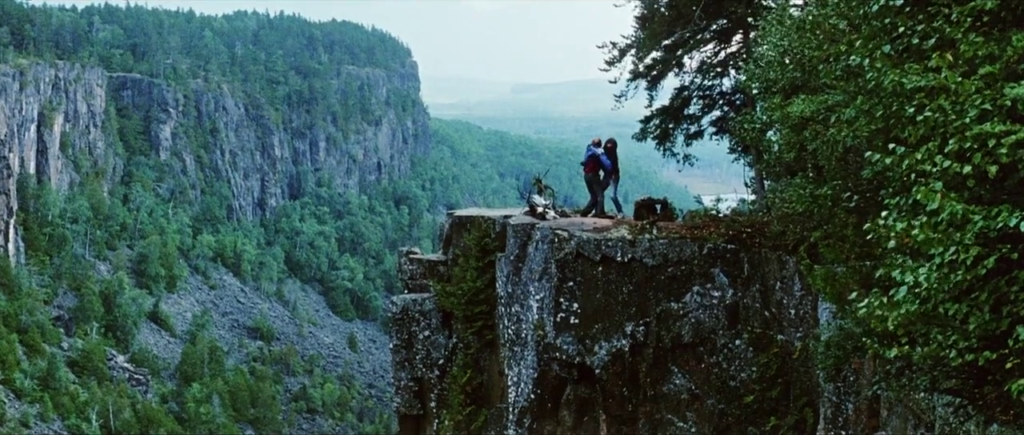
Set in a region of Canada inspired by Oka, Quebec and the events that took place there in the summer of 1990, Clearcut (1991) tells the story of a lawyer named Peter Maguire (Ron Lea) who has failed in his legal representation of an unnamed First Nations Reserve in a land dispute with a logging company. Arthur (Graham Greene), a vessel of vengeance made flesh, abducts Peter Maguire and the owner of the logging company, Bud Rickets (Michael Hogan), and escapes with them into the wilderness. Isolated in the Canadian forests Peter Maguire fights to keep himself and Bud alive as Arthur exacts his revenge.
Polish filmmaker Ryszard Bugajski may seem an unlikely choice to helm a thriller steeped in the cultural and political clashes between white and indigenous people in North America but Bugajski’s films have always been politically progressive and intensely assertive. Bugajski’s perspective is clearly black and white which serves Clearcut in so far as it enables the director to establish an obvious moral stance whilst relegating the political complexities of the situation to the dialogues between the three central characters. If, on a visual level, Bugajski had attempted to represent the differing views of the characters the effectiveness of the violence in Clearcut would have been severely compromised.
Bugajski isn’t scared of the anger at the heart of Clearcut. This is a film that imagines an equitable reciprocity between white and First Nations people for the atrocities of the former upon the latter. Arthur, a mythical figure summoned from the waters of the earth, tortures the white capitalist who exploits the ecology of First Nations’ land and abuses the white liberal lawyer whose good intentions have born too little action. Bugaksi frames Arthur as the mythical centerpiece of some expressionistic German silent film even as Robert Forsyth’s script has Arthur verbally dismantling every pre-conceived idea about Native Americans that have been propagated by the white media.
Clearcut is a grenade hurled at the safer progressive features like Dances With Wolves (1990) whose liberal pandering does more to preserve the status quo than to incite action and change. Graham Greene, who appears in both of the previously mentioned films, is the charge in this metaphorical explosive. Greene’s portrayal of Arthur swings from terrifying in one moment too comically manic the next. There’s a fury in Greene’s eyes in every close-up and an intensity to how he moves his powerful body against the backdrop of the wild landscape. Greene sets and then carries the emotional tone of Clearcut and he does so masterfully.
As much as Clearcut is an act of political defiance and advocacy it does draw upon and embrace a narrative trope at odds with its design. White artists sympathetic to the causes of the First Nations have been employing the narrative of an “indigenous spirit of vengeance” for years; from issues of Uncanny X-Men to Buffy The Vampire Slayer. In fact this type of narrative most likely has its roots in colonial times as a means of scaring people by demonizing Native Americans. Clearcut is just another iteration of this story, albeit one that feels less fetishistic due to Greene’s performance and Forsyth’s self-aware style.
